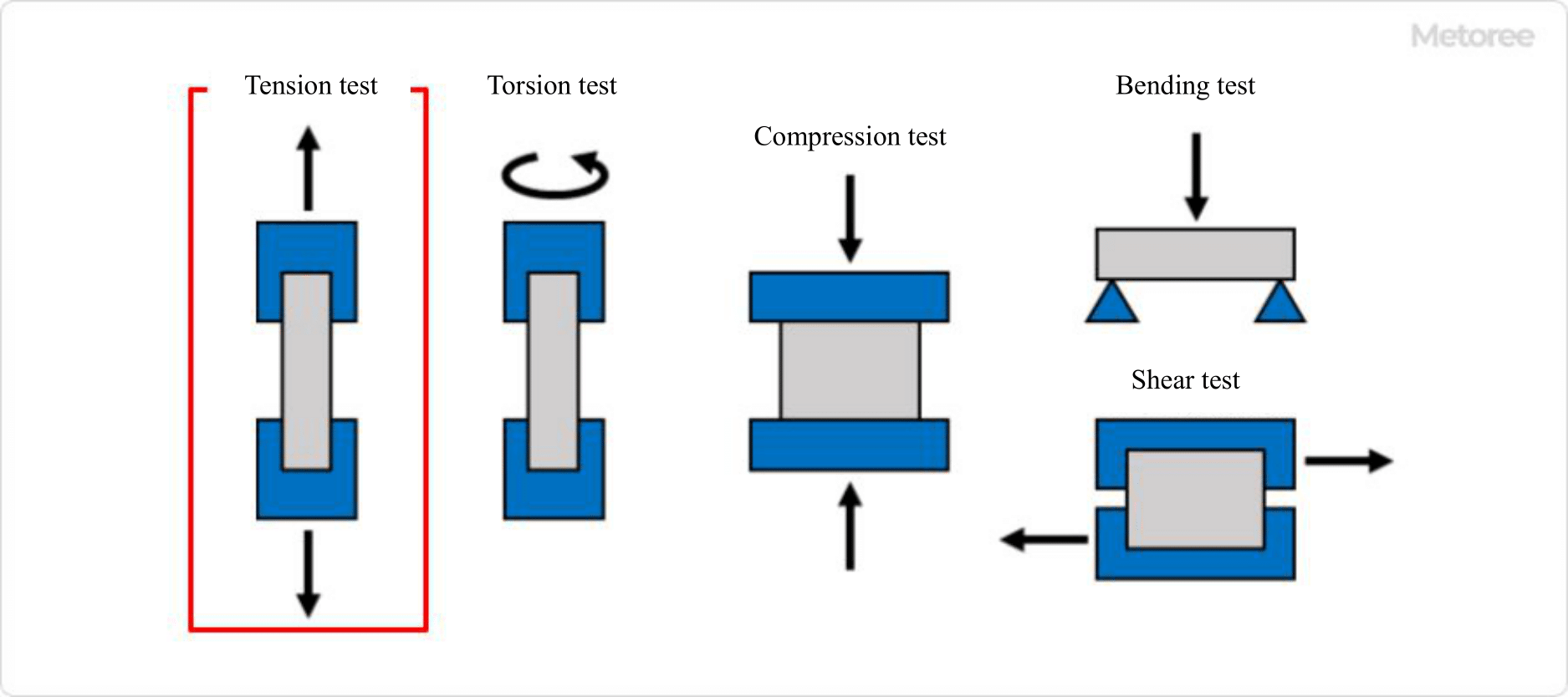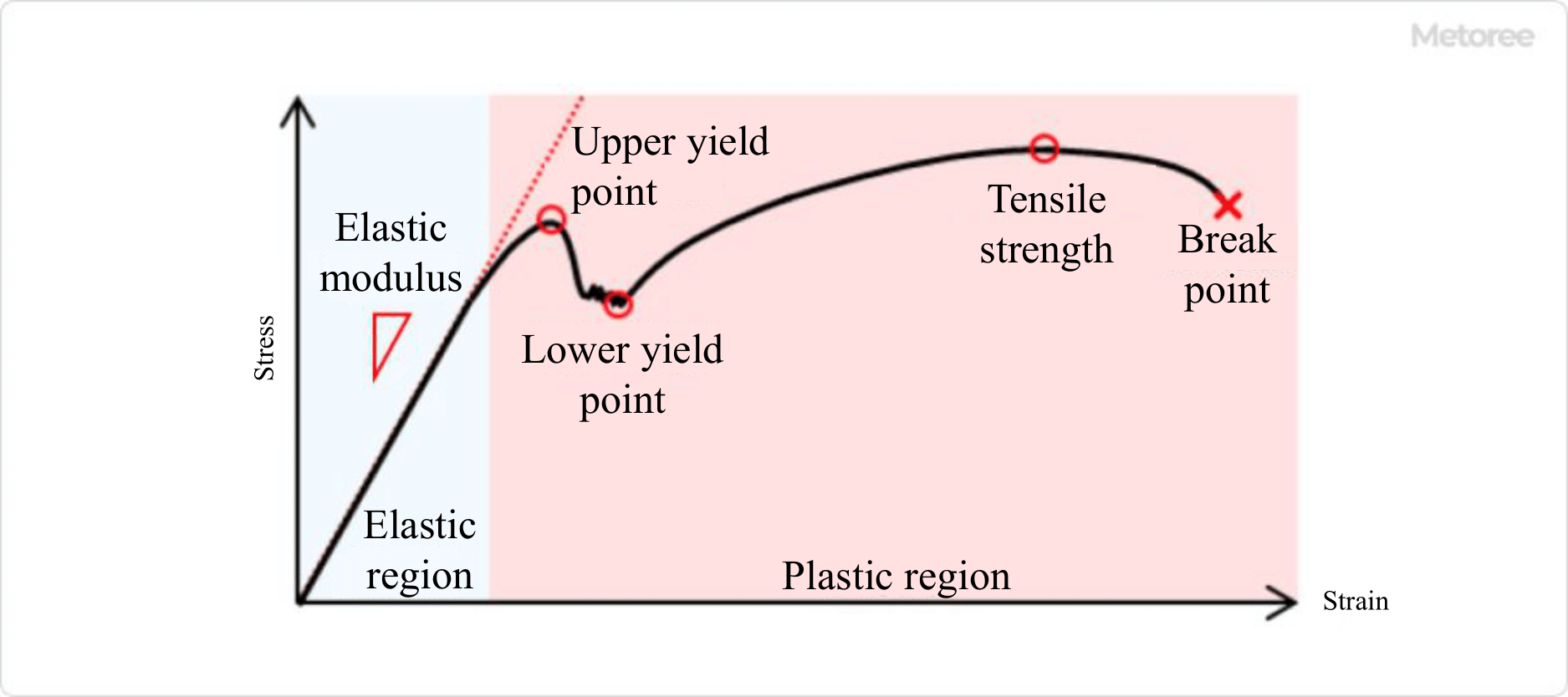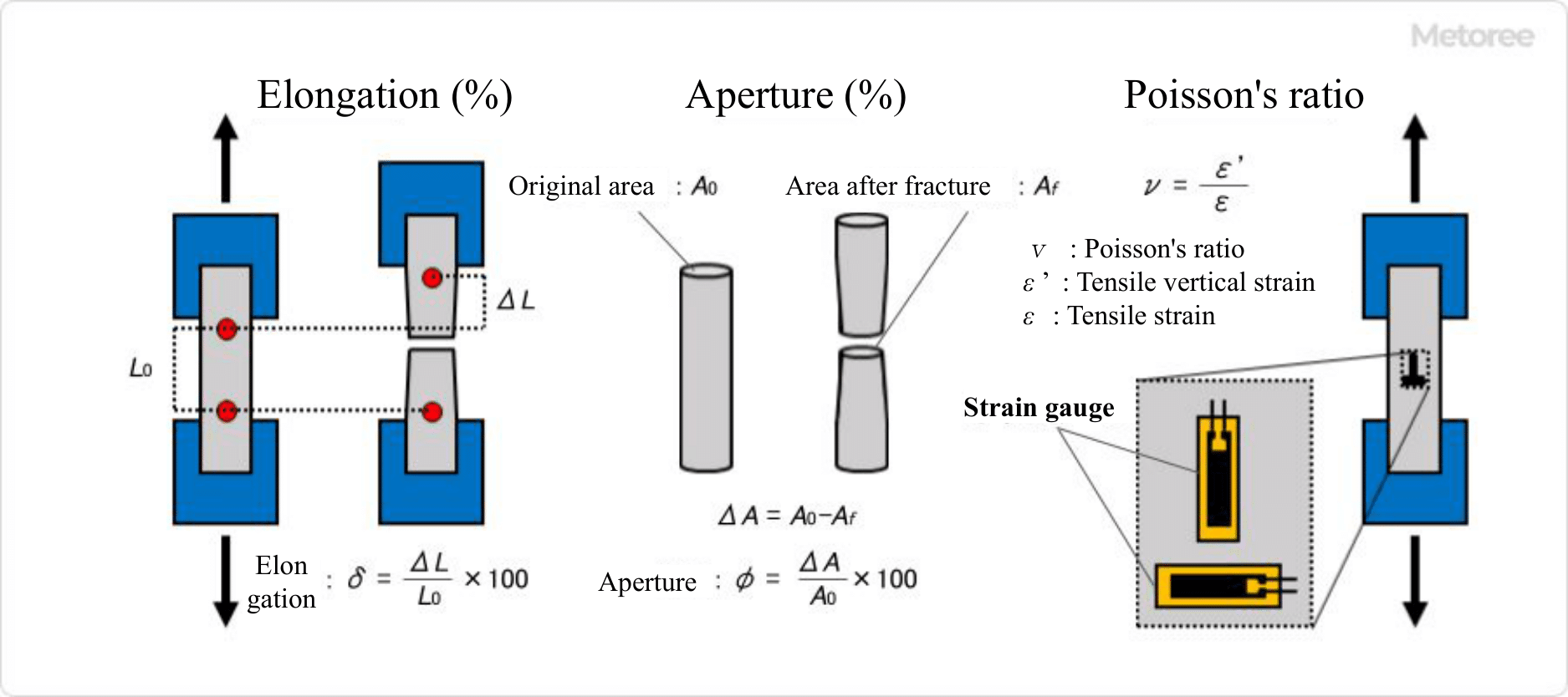All Categories
History












This section provides an overview for tensile testing services as well as their applications and principles. Also, please take a look at the list of 18 tensile testing service companies and their company rankings. Here are the top-ranked tensile testing service companies as of February, 2026: 1.Professional Analysis and Consulting, Inc., 2.Metallurgical Engineering Services, Inc., 3.Westmoreland Mechanical Testing & Research, Inc..
Table of Contents
Categories Related to Tensile Testing Services

Figure 1. Types of strength tests
A tensile testing service, like bending and compression testing, is a type of strength test for materials.
This test measures the strength of a material when a tensile force is applied to it, i.e., a force that pulls both ends of a test specimen outward. A tensile testing service or universal testing machine is used to apply a tensile load. Measurements are made using load cells, strain gauges, and displacement transducers. By analyzing the relationship between strain and applied load or stress obtained from the test, the mechanical properties of the material can be evaluated.
A tensile testing service is performed in diverse fields. The data obtained from testing contributes to the development of products that can be used safely and reliably.
Tensile testing services are used in various fields, such as civil engineering, construction, machinery, and medicine.
The purpose of tensile testing services is for research and development and quality assurance. It is applied to various materials such as metal, rubber, plastic, and paper. Tensile testing is also used in classes at universities and other institutions, where students learn more about materials by actually stretching the material, observing how it is stretched to fracture, analyzing the data, and discussing the results.
The data obtained from tensile testing services are used for various simulations and designs. The data obtained from tensile testing is important for the development of products that can be used safely and reliably, as it supports the foundation of such products.

Figure 2. Stress-strain curve
When a tensile force is applied to both ends of a specimen, the material begins to stretch in the direction of the tensile force and eventually breaks.
Stress and strain applied to a material are proportional, but as tensile force is continually applied, the proportional relationship between stress and strain is broken, and the increase in stress in response to changes in strain becomes slower. When the load is further increased and a condition called yield point is passed, the stress drops once but then rises again as the load is applied. The maximum value of stress at this time is the tensile strength.
The tensile testing services are continued until the specimen breaks, which provides reliable data.

Figure 3. Example of data obtained from a tension test
The information derived from tensile testing services includes stress-strain curves, elongation, elongation-drawing, Poisson's ratio, etc. By analyzing the stress-strain curves, information, such as elastic modulus, upper yield point, lower yield point, tensile strength, and breaking point, can be obtained.
1. Elongation (%)
Elongation is the ratio of how much a specimen elongates to rupture and is generally smaller for higher-strength specimens and larger for lower-strength specimens. Two marks are placed on the specimen and the distance between the two marks is measured before the test starts and at the time of fracture. Elongation is the change in distance expressed as a percentage of the original distance between the points.
2. Aperture (%)
Aperture is the percentage change in the cross-sectional area of a specimen. The larger this value is, the more suitable the specimen is for deep drawing. The cross-sectional area of the most distorted portion of the specimen after rupture is measured. The change in the cross-sectional area relative to the original cross-sectional area, expressed as a percentage, is the aperture.
3. Poisson's ratio
Poisson's ratio is the absolute value of the ratio of the strain in the direction of the applied tensile load to the strain perpendicular to the applied load. It can be obtained by attaching a biaxial strain gauge to a specimen and performing tensile testing services. The larger the Poisson's ratio, the more the material strains in the direction perpendicular to the tensile load.
4. Modulus of Elasticity (N/mm2)
The modulus of elasticity is the slope in the elastic range, an interval where the relationship between stress and strain can be expressed as a linear equation. Here, the elastic range is the interval where the material returns to its original shape when the load is removed, even if it is deformed. The slower this slope is, the softer the material is.
5. Upper Yield Point (N/mm2)
The upper yield point is the point where the stress value is highest at the boundary between the elastic and plastic regions and is generally called the yield point. Here, the plastic zone is the section where deformation does not return even if the load is removed. The phenomenon where plastic deformation begins to occur suddenly is called yielding. A high yield point means that the material is less susceptible to plastic deformation.
6. Lower Yield Point (N/mm2)
The lower the yield point is, the lower the stress value on the yield shelf, and the better the forming ability of plastic. The lower this value is, the better the plastic-forming capability. The yield shelf is the section that appears after yielding begins abruptly at the upper yield point, where the stress level decreases and the stress does not increase even if the strain increases.
7. Tensile Strength (N/mm2)
Tensile strength is the maximum tensile stress applied during tensile testing services and is the maximum strength a material can have. The higher the tensile strength, the higher the strength overall.
8. Breaking Point
The breaking point is the point on the stress-strain curve when the specimen breaks. The stress at that point is called the breaking stress, and the strain is called the breaking strain.
In tensile testing services, tensile testing machines and universal testing machines are used to apply tensile load, and load cells, strain gauges, and displacement transducers are used for measurement.
There are various types of testing machines, including motorized, hydraulic, and electromagnetic types. Universal testing machines can perform a variety of tests by replacing jigs. For tensile testing services, jigs such as screw-type flat grips, pneumatic flat grips, and fixed-point rust-type grips are used.
Strain gauges are attached to a test specimen and used to calculate strain by measuring the amount of change in current as the specimen is strained along with the object being measured. Displacement gauges used for measurement are either contact or non-contact, the former being able to measure small elongations with high precision, and the latter minimizing the effect of contact on the specimen. Both of these, moreover, are available in several types, which are used differently depending on the material and application.
*Including some distributors, etc.
Sort by Features
Sort by Area

Curtiss-Wright Corporation, founded in Davidson, North Carolina, in 1929 is a manufacturer of components for actuators, aircraft controls, valves, and surface-treatment services. The company's product portfolio includes aircraft components, including structural parts, engine components, landing gear components, and hydraulic systems, navigation systems, communication equipment, flight control systems, and cockpit displays. The company serves industries such as Oil and Gas, Aerospace and Defense, Automotive and Transportation, Construction, and Power Generation. The company also offers customer services that include support, custom research projects and customized services.

Professional Analysis and Consulting, Inc., founded in Illinois, the United States in 2007 is a supplier of engineering, forensic, and scientific expertise services. The company offers services such as crash data retrieval, evidence management & storage, aerosol can testing, scene documentation with drone technology, and tensile and compression testing. It serves law firms, insurance companies, and manufacturers in the markets of metallurgical, electrical, aerospace, mechanical, and automotive, throughout the U.S. and the world.



Westmoreland Mechanical Testing & Research, Inc., founded in Pittsburgh, PA, United States in 1967, is a supplier of materials testing. The company offers services such as mechanical testing, non-metallic and composites testing, fatigue testing, and stress rupture and creep testing. It has over 300,000 square feet of production and testing capacity that is designed to ensure minimum turnaround times. The company serves markets including additive manufacturing, aerospace, automotive, oil and gas, and power generation.

Laboratory Testing Inc., founded in Hatfield, PA, in 1984 is a supplier of Materials Testing, Non-destructive Testing and Calibration Services. The company's product portfolio includes Microscopic Examination, Elemental Analysis, Hardness / Microhardness, Fatigue Testing, SEM / EDS Analysis, and Stress Rupture Testing. They serve industries such as Healthcare, Consumer goods, Food and Beverage, Pharmaceutical and Biotechnology and Chemical and Petrochemical. They also offer custom packaging, warehousing, worldwide shipping and customer support.


RTI Laboratories, founded in the United States in 1991 is a supplier of environmental, chemical, and materials testing. The company offers services such as surface analyses, corrosion testing, and product compliance testing. The company has laboratories spanning over 24,000 square feet and employs more than 60 professionals. and serves as an incubator for startups by leasing office space to synergistic companies, including a biologic testing company, a calibration gas supplier, and a laboratory software developer.

TITAN METALLURGY, founded in Oak Park, Michigan in 2003 is a supplier of metallurgical testing services. The company offers services throughout the USA such as Charpy impact testing, tensile testing, Rockwell hardness testing, chemical analysis, and failure analysis. Its services are used for steel making, hot rolling, cold drawing, and cold, hot, and warm forging. The company is s accredited by the American Association of Laboratory Accreditation (A2LA) to the ISO 17025:2017 standard.

Thyssenkrupp Materials NA, Inc., founded in Germany, in 1871 is a supplier of production materials such as aluminum long bar, pipe and plate products. The company's product portfolio includes Aluminum Pipes, Engineering plastics, Stainless Steel Long Bar, Sheet, and Strip products. The company serves industries such as Oil and Gas, Aerospace and Defense, Automotive and Transportation, Construction, and Power Generation. The company also provides services such as custom manufacturing, Laboratory Services, Warehousing and Distribution, Quality Solutions and Transportation Services.

Elite Electronic Engineering, Inc., founded in Downers Grove, IL, United States in 1954, is a supplier of photometric testing, EMC, and ENV testing services. The company offers services such as EMI/EMC testing, environmental stress testing, photometric testing, wireless certification, and FAA airport lighting certification qualification testing. Its tests cover a wide range of applications and apply to various industries, such as aerospace, military, automotive, heavy machinery, and commercial & industrial.

Mecmesin, established in 1977, is a UK-based manufacturer and supplier specializing in designing force, materials and torque testing solutions for quality control. The company designs and manufactures force and torque testing equipment such as hand-held gauges, software-controlled testers, and torque systems. Their product portfolio also includes custom materials and torque test solutions for specialized applications, from grips and fixtures to fully automated test systems. Operating under ISO 9001 quality standards, Mecmesin serves clients in different industries globally with group headquarters in the United Kingdom and North America, and offices in France, Germany, China and Thailand.

Haida International Equipment was founded in 2004 as a manufacturer and supplier of Testing Equipment in China. The company deals in various precision testing instruments, machines, and services such as Batteries, Furniture, Textiles, Leather and Shoes, and Rubber and Plastic test equipment. There is also Adhesive tape, Cookware, Luggage, Optical, and Vibration test equipment along with Accelerated Environment Test Chamber (AES) that executes QC inspection on electronic appliances, paper products, metals, research institutes, and lots more. The other testing machines cater to industrial and mining enterprises, colleges and universities, engineering quality supervision stations, and other departments.

Industrial Physics, a portfolio company of KKR a private-equity firm, is a manufacturer of test, measurement, and inspection equipment, based in the United States. The company specializes in the food and beverage, paper and plastics, paint and coatings, materials testing, and consumer electronics markets. They operate across a family of brands, including TQC Sheen, Technidyne, and C&W Equipment. They have been supporting manufacturers, laboratories, and production lines across a multitude of industries.




ELCA Labs, founded in Maharashtra, India in 1974, is a SO IEC 17025 (NABL) accredited company that offers independent laboratories specializing in material testing. The company offers services such as electrical testing for various types of electrical items like cables and electrical accessories and a comprehensive range of material testing and consultancy services for chemical, metallurgical, and corrosion. Its laboratories are equipped with state-of-the-art machinery at par with international standards.

Westpak was established in 1986 and is headquartered in Grand Island, NE. Westpak is a third-party, independent test laboratory specializing in product and package testing. The company’s product range includes physical, mechanical, chemical, and environmental testing. Westpak is a certified ISO 9001:2015 company and is a member of the International Safe Transit Association (ISTA). As a dependable testing partner, they specialize in packaging testing and validation services that cater to diverse industries, including pharmaceutical, medical device, and consumer goods.

ARL Laboratory Services Pty Ltd., founded in Australia in 1996, is a supplier of non-destructive testing, mechanical testing, and specialized inspection services. The company offers services such as radiographic testing, ultrasonic inspection & testing, magnetic particle testing, dye penetrant testing, and eddy current testing. It serves the oil and gas, chemical, petrochemical, cement, power, and infrastructure sectors throughout Australia and the Asia pacific region and has offices in UAE, China, and Pakistan.

Element is a global supplier of materials testing and certification services headquartered in the US since 1827. They offer testing and inspection solutions worldwide, including tensile testing machines, impact testers, hardness testers, SEM, XRF analyzers, and environmental chambers, used to evaluate materials like metals, polymers, and composites in various sectors. including academic institutions, research labs, and industries. With a rich history spanning over a century, Element excels in precision instruments for scientific and engineering applications.
Ranking as of February 2026
Derivation Method| Rank | Company | Click Share |
|---|---|---|
| 1 | Professional Analysis and Consulting, Inc. |
25.5%
|
| 2 | Metallurgical Engineering Services, Inc. |
11.8%
|
| 3 | Westmoreland Mechanical Testing & Research, Inc. |
9.8%
|
| 4 | Curtiss-Wright. IMR Test Labs |
9.8%
|
| 5 | Applied Technical Services, LLC |
9.8%
|
| 6 | Laboratory Testing Inc. |
7.8%
|
| 7 | Industrial Physics |
5.9%
|
| 8 | RTI Laboratories |
3.9%
|
| 9 | TITAN METALLURGY |
3.9%
|
| 10 | Westpak |
3.9%
|
Derivation Method
The ranking is calculated based on the click share within the tensile testing service page as of February 2026. Click share is defined as the total number of clicks for all companies during the period divided by the number of clicks for each company.Number of Employees
Newly Established Company
Company with a History
*Including some distributors, etc.
*Including some distributors, etc.
| Country | Number of Companies | Share (%) |
|---|---|---|
 United States of America
United States of America
|
10 | 62.5% |
 United Kingdom
United Kingdom
|
2 | 12.5% |
 China
China
|
1 | 6.3% |
 Japan
Japan
|
1 | 6.3% |
 India
India
|
1 | 6.3% |
 Australia
Australia
|
1 | 6.3% |